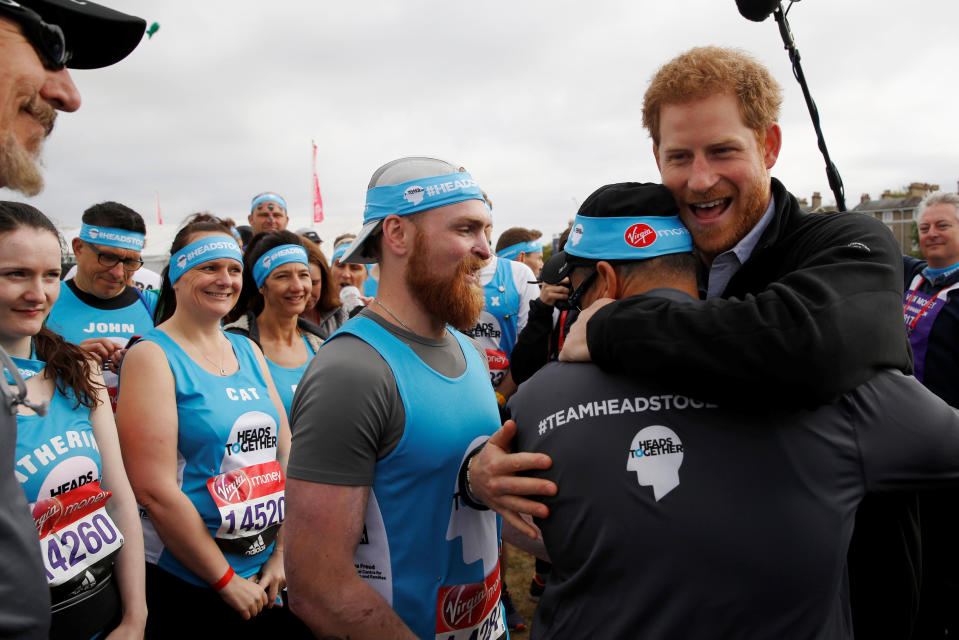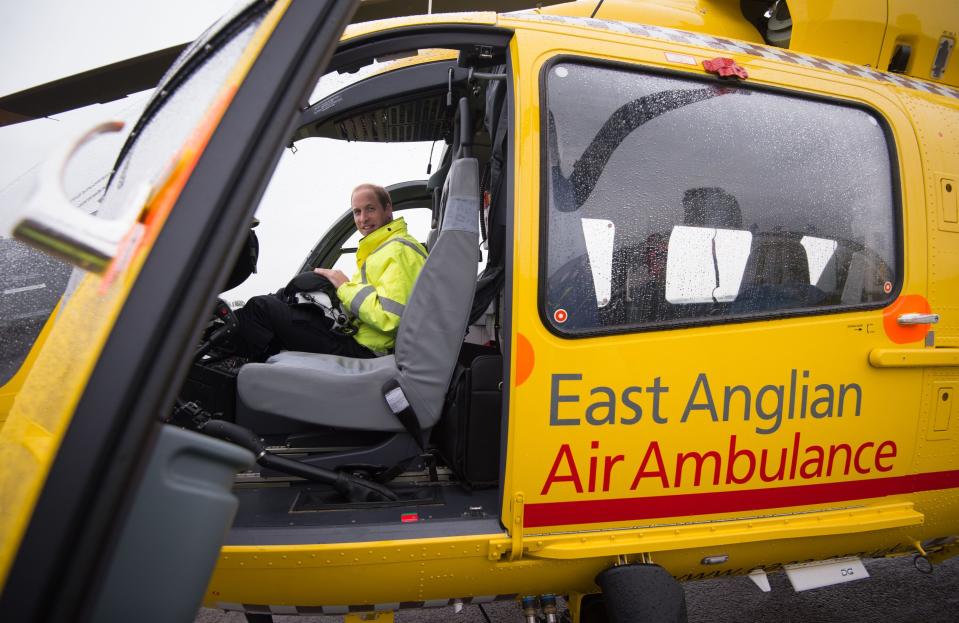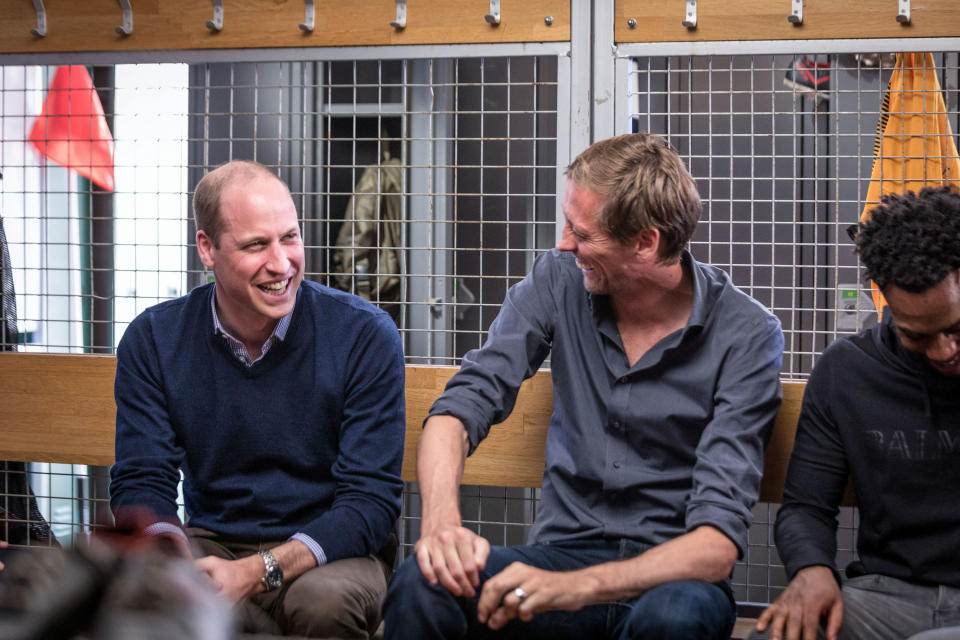Prince Harry says sharing his mental health struggles is his ‘way of doing duty and service’
Prince Harry has revealed why he’s previously been so honest about his mental health struggles.
The 34-year-old royal discussed years of managing his mental health difficulties in a candid interview in 2017, revealing that he had been “very close to total breakdown on numerous occasion” and undertaken therapy to come to terms with his mother’s death.
The extremely rare podcast interview (with Telegraph columnist Bryony Gordon) shocked many, as members of the Royal Family aren’t usually so frank.
But according to ITV News Royal Editor Chris Ship, Harry has a good reason for sharing his experiences.
READ MORE: Duke and Duchess of Cambridge finalise charity 'split' from Prince Harry and Meghan Markle
Speaking on Yahoo UK’s The Royal Box, Ship says: “I remember talking to Harry about this... I said, ‘Look, royals aren’t meant to open up, we’re not meant to know what you think.’
“And his response was, ‘Look, this is my way of doing duty and service. My grandmother had a certain way of doing it but my way is to say ‘okay, I sought some help professionally for mental illness’, and if that encourages other people to talk about it or go and seek some help then that’s me imparting my duty and service.’
“I thought that was a very interesting answer, that’s how they see their role changed in a very distinct way from their grandmother’s role of duty and service and that’s why they have opened up.
“That’s why William spoke – that’s why they spoke about their mum a couple of years ago on the anniversary of her death.”
READ MORE: Surprising signs you could be suffering from a mental health condition

Also on The Royal Box, royal commentator Omid Scobie recalls William telling him about his own struggle to deal with his work a search and rescue pilot.
Dad-of-three William completed his last shift as an air ambulance pilot in July 2017 after working for the East Anglian Air Ambulance service since March 2015. Prior to that, he served for almost five years as a helicopter pilot with the RAF’s Search and Rescue Force.
“I remember having a conversation with William when he was working as an air ambulance pilot and he said that often at the end of his day to unload everything that he had taken on was a real struggle for him,” says Scobie.
READ MORE: How to combat male loneliness
“He would come home and he would need to put the TV on and just sort of zone out for a moment before he could really digest everything with his family, talk to his wife about it and so on.
“So he has been on this journey himself of kind of understanding his own emotional wellbeing. I think now he is in a position where he can share a lot of that with the world.”

William is set to continue his drive to address men’s mental health with a campaign to highlight the importance of seeing it as important as physical wellbeing.
William and Kate’s Heads Together charity has teamed up with the Football Association on the “Head’s Up” campaign, which runs into next year, concluding at the Emirates FA Cup Final on May 23, 2020.
It’s a perfect fit for William, says royal commentator Victoria Arbiter, who joins Ship and Scobie on the Royal Box sofa.
“This is actually really smart on William’s side,” she says, “because he is a massive football fan – he loves it, so there’s nothing like using your passion to really push your message as well.”
The campaign builds on the BBC documentary William featured in alongside footballers Peter Crouch and Danny Rose, ex-players Thierry Henry and Jermaine Jenas and England manager Gareth Southgate, in which he opened up about his own views on mental health.
READ MORE: Prince William documentary sparks important conversation about mental health and male suicide

By opening up about their own experiences when it comes to mental health, both William and Harry have “changed the conversation”, Ship tells The Royal Box.
“They have changed the conversation in so many ways on mental health, all for the better,” he says.
“I think they have done an absolutely fantastic job and you will be hard-pressed to find anyone in the country, particularly anyone in the mental health sphere, who doesn’t think they have done an amazing job.”



